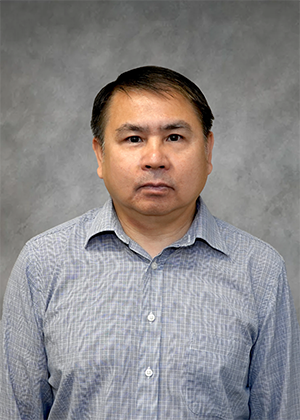Dr. Songjian Lu, PhD, joined the McWilliams School of Biomedical Informatics, Center for Precision Health, in August 2025. With an academic foundation rooted in mathematics and computer science, Dr. Lu also had extensive postdoctoral training and research experience in bioinformatics. He specializes in developing advanced algorithms to address complex computational challenges, including NP-hard problems, in the field of bioinformatics. His research involves designing sophisticated models—such as graph-based, statistical, and artificial intelligence/machine learning (AI/ML) approaches—to identify driver mutations and disrupted signaling pathways that contribute to diseases like glioblastoma (GBM) and breast cancer (BRCA). Currently, Dr. Lu focuses on utilizing cutting-edge technologies, including single-cell RNA sequencing (scRNA-seq), single-cell ATAC sequencing (scATAC-seq), and spatial transcriptomics data, to drive advancements in cancer and Alzheimer’s disease research.
- Tell us about your research center and/or what research/work you are currently working on.
My current research focuses on developing novel computational methods that leverage advanced statistical models and artificial intelligence/machine learning (AI/ML) approaches to integrate diverse types of genomic and transcriptomic data. Specifically, I work with single-cell RNA sequencing (scRNA-seq), single-cell ATAC sequencing (scATAC-seq), bulk RNA sequencing (bulk RNA-seq), and Visium spatial transcriptomics data to investigate the underlying mechanisms of Alzheimer’s disease (AD) and various cancers.
The computational methods I am developing include innovations such as scRNA-seq data normalization, purification of bulk RNA-seq data and Visium spot cell type percentages and expression profiles, and analysis of the spatial distribution of different cell types and their interactions. These approaches allow us to better understand cell-to-cell communication and the spatial organization of cellular environments in diseased tissues.
Ultimately, my research aims to uncover key insights into disease mechanisms and pave the way for developing new strategies for immunotherapy, offering potential new methods in the treatment of AD and cancers.
Education
- PhD, Computer Science, 2009, Texas A&M University
- MS, Computer Science, 2003, University of Houston–Clear Lake
- MS, Applied Mathematics, 2001, University of Houston
Areas of Expertise
- Bioinformatics
- Artificial Intelligence / Machine Learning
- Algorithm Theory and Design
